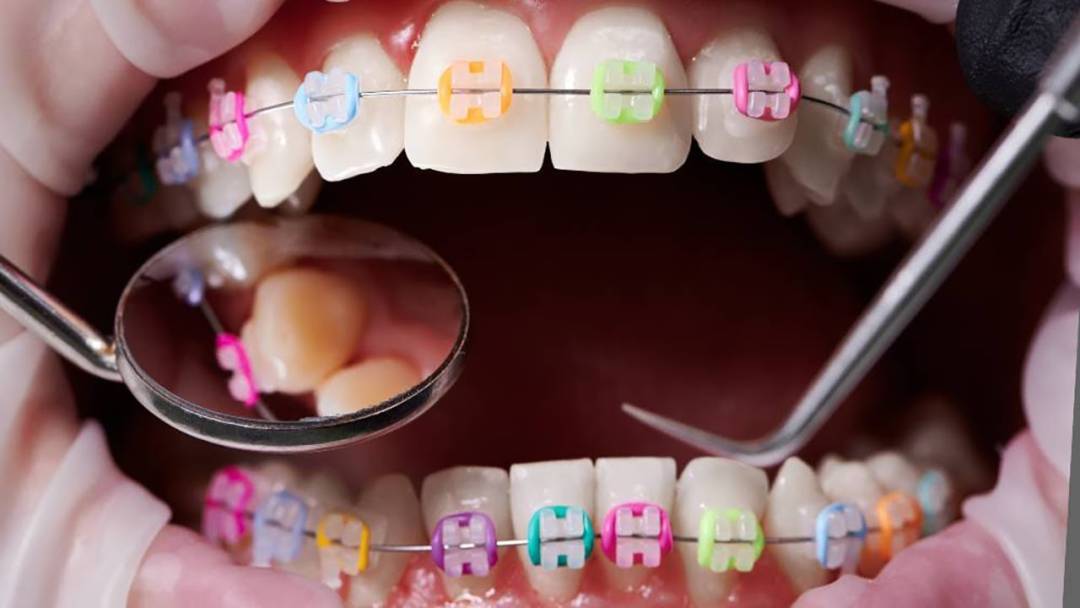Orthodontic treatment has evolved significantly over the years, giving patients more aesthetic and comfortable options for straightening their teeth. Among these options, ceramic braces, often referred to as clear braces, have gained popularity for being less noticeable than traditional metal braces. But like any orthodontic solution, ceramic braces come with their own set of advantages and disadvantages.
In this article, we’ll break down the pros and cons of ceramic braces so you can make an informed decision if you’re considering them as part of your orthodontic journey.
What Are Ceramic Braces?
Ceramic braces are similar in shape and size to traditional metal braces, but instead of using metallic brackets and wires, they utilise clear or tooth-colored brackets. These brackets are typically made from polycrystalline alumina, a durable and aesthetically pleasing material. The wires used can also be frosted or tooth-colored to further reduce visibility.
This makes clear braces a top choice for teens and adults who want a more discreet way to straighten their teeth without opting for removable aligners like Invisalign.
Pros of Ceramic Braces
1. Aesthetically Pleasing
One of the biggest advantages of ceramic braces is their appearance. The clear or tooth-colored brackets blend in with your natural teeth, making them far less noticeable than traditional metal braces. This is especially beneficial for adults and teens concerned about their smile during treatment.
2. Effective Treatment
Unlike clear aligners that may not be suitable for complex orthodontic issues, ceramic braces are capable of treating nearly all the same conditions that metal braces can, including severe misalignments, bite issues, and overcrowding. Their strength allows orthodontists to move teeth effectively and predictably.
3. More Comfortable Than Metal Braces
While all braces involve some level of discomfort, many patients report that ceramic braces feel smoother against the lips and cheeks compared to metal brackets, reducing irritation.
4. Stain-Resistant Brackets
High-quality ceramic brackets are made to resist staining, meaning they can maintain their clear or tooth-colored appearance throughout treatment, especially when good oral hygiene is practised.
5. Boosted Confidence During Treatment
Because they are less noticeable, clear braces can help boost a patient’s confidence while wearing them. This can be especially important in professional or social settings where appearance matters.
Cons of Ceramic Braces
1. More Fragile Than Metal Braces
One of the main disadvantages of ceramic braces is their fragility. The brackets, while strong, are more likely to crack or break compared to metal brackets. This means extra care is required during eating and cleaning.
2. Higher Cost
Ceramic braces tend to be more expensive than traditional metal braces. The increased cost comes from the materials used and the additional time it may take for your orthodontist to place and adjust them properly.
3. Longer Treatment Time
While ceramic braces can effectively move teeth, the process can sometimes take longer. Orthodontists may apply gentler forces to avoid damaging the brackets, which can extend the duration of treatment.
4. Staining of Elastic Ties
Even though the ceramic brackets themselves are stain-resistant, the elastic ties that hold the wires in place are not. These can become discoloured by foods and drinks like coffee, tea, wine, or curry, which may affect the aesthetic appeal of clear braces between orthodontic visits.
5. More Maintenance and Care
Due to their delicate nature and the risk of staining, ceramic braces require a higher level of care and maintenance. Patients need to be diligent with brushing, flossing, and avoiding hard or staining foods.
Ceramic Braces vs. Other Orthodontic Options
Ceramic Braces vs. Metal Braces
| Feature | Ceramic Braces | Metal Braces |
| Visibility | Less visible | Highly visible |
| Strength | Less durable | Very durable |
| Cost | More expensive | More affordable |
| Comfort | Smoother surface | Can irritate cheeks |
| Staining | Brackets resist stains, but ties may stain | No staining |
Ceramic Braces vs. Clear Aligners (e.g., Invisalign)
| Feature | Ceramic Braces | Clear Aligners |
| Visibility | Low | Very low (nearly invisible) |
| Treatment Range | Wide | Moderate to complex, but limited |
| Removability | Fixed | Removable |
| Discipline Required | Moderate | High (must wear 20–22 hrs/day) |
| Staining Risk | Elastic ties may stain | Trays can stain without proper care |
Ideal Candidates for Ceramic Braces
Not everyone is the perfect candidate for ceramic braces, but they are an excellent option for:
- Teens and adults concerned with aesthetics
- Individuals with moderate to severe misalignment
- Patients who prefer fixed appliances over removable aligners
- Those committed to good oral hygiene and maintenance
However, individuals involved in contact sports or those who are prone to damaging their appliances may be better suited for traditional metal braces due to their durability.
Tips for Maintaining Ceramic Braces
To get the best out of your clear braces, follow these tips:
- Brush and Floss Regularly: Aim to brush after every meal and floss daily to prevent staining and plaque buildup.
- Avoid Staining Foods: Minimise intake of coffee, red wine, soy sauce, and turmeric-based dishes.
- Visit Your Orthodontist Regularly: Keep all appointments and follow instructions to avoid extended treatment times.
- Wear a Mouthguard: If you play sports, protect your braces with a mouthguard to prevent damage.
- Don’t Use Whitening Products: These can whiten exposed enamel but leave the area under the brackets darker, creating uneven colouring when braces are removed.
Are Ceramic Braces Worth It?
Whether ceramic braces are worth it largely depends on your priorities. If appearance during treatment is a top concern and you’re willing to put in a little extra effort to maintain them, clear braces offer an excellent balance between aesthetics and effectiveness.
While they may cost more and require more care than traditional metal braces, the confidence boost and comfort they offer can be invaluable, especially for adults in professional or social situations.
Frequently Asked Questions About Ceramic Braces
Do ceramic braces work as fast as metal braces?
In some cases, treatment may take slightly longer with ceramic braces, but the difference is often minimal if you follow your orthodontist’s instructions.
Can ceramic braces stain?
The brackets themselves are generally stain-resistant, but the elastic ties can become discoloured over time. These are usually changed at each orthodontic visit.
Are ceramic braces painful?
All braces can cause some discomfort when first applied or adjusted. However, many patients find ceramic braces to be less irritating to the inside of the mouth.
How much do ceramic braces cost?
On average, ceramic braces can cost between $4,000 to $8,000, depending on the complexity of your case and your location.
Can I switch from metal to ceramic braces mid-treatment?
It’s possible, but it depends on your specific treatment plan. Consult your orthodontist to explore your options.
Conclusion
Ceramic braces, or clear braces, are an attractive and effective orthodontic treatment option for people seeking a more discreet alternative to metal braces. They offer numerous benefits in terms of appearance and comfort, making them especially appealing to older teens and adults.
However, they do come with a few trade-offs, such as higher costs and the need for more maintenance. By understanding the pros and cons of ceramic braces, you can work closely with your orthodontist to choose the best treatment plan for your unique needs.
If you’re ready to take the next step toward a straighter smile without compromising your appearance, ceramic braces might be the perfect choice for you.
Read More: Dental Implants Hungary Helvetic Clinics
















